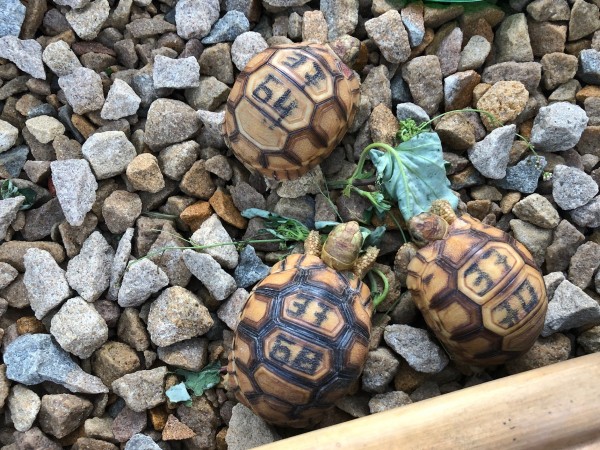UMD-Led Team Develops First-Ever Standards to Better Track, Manage Illegal Wildlife Trade
Meredith Gore and a score of international experts establish the first set of standards for how to collect data about traded wildlife
Seemingly absent from all the COVID-induced discussions about supply chains is one with increasing significance to multiple industry sectors: the illegal sale of living or dead animals, plants or their parts, more commonly called “wildlife trafficking.”
“We've always had a legal wildlife trade,” said Meredith Gore, an associate professor in the University of Maryland’s Department of Geographical Sciences, noting the silk road as a historical example. “But since around 2008, we've just seen an astronomical rise in the scope and scale of illegal wildlife trade (IWT) of everything from glass eels to cactuses to scorpions to parrots—for all different purposes—and it has caused other sectors to really think about how this connects to their bottom line.”
If left unchecked, IWT can lead to dire consequences, from extinction to violence to legal businesses’ economic downfall. It’s of particular concern today considering IWT has no boundaries, low barriers to entry, and—like we learned about so many things in the thick of the pandemic—can be facilitated online anytime, anywhere.

Figuring out what we need to do to combat IWT starts with getting a better understanding of the issue; and therein lies the problem that Gore and 24 co-authors from around the world seek to solve with the first-ever wildlife data standards published today in Nature’s “Scientific Data” journal.
“We know things about illegally traded cigarettes or cocaine or heroin or methamphetamines or opioids—we do our best to measure and track these supply chains—and yet we haven't been able to do that for nature crimes because we don’t have data standards,” said Gore, who began developing such data standards five years ago while working as a National Academies of Sciences Jefferson Science Fellow at the U.S. Department of State. “A precursor to data analysis is data collection, and so far it’s been really hard to track data, draw trends, and make conclusions.”
After convening three workshops with world experts on IWT, Gore and her co-authors collaboratively created a list of standards for describing the physical attributes of the wildlife (data descriptors); information about what kind of wildlife it is and how it was being marketed (conservation information); associated court case numbers, outcomes and details (criminogenic information); and where researchers interested in additional specimen information can follow up (data integrity, maintenance, and interoperability information).
“There are so many different sectors working on nature crime now, and so many different ways of looking at the problem, it became clear that if we prescribed these standards from the top, it might not be usable, useful, and ultimately used,” said Gore. “My hope for these standards is that they will be adapted, refined and revised by researchers, conservation organizations, or diplomats or foregin affairs officers. This is just the starting point.”
To read the full paper, click here.
Story originally published by the College of Behavioral and Social Sciences.
Photos provided by Meredith Gore.
Published on Fri, 06/03/2022 - 10:08


